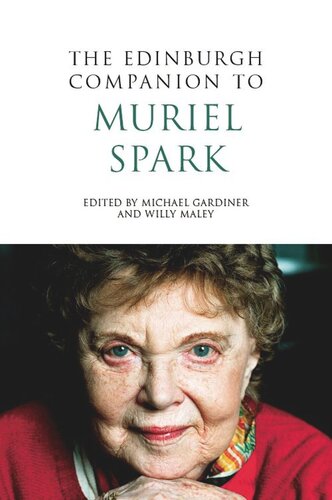

Most ebook files are in PDF format, so you can easily read them using various software such as Foxit Reader or directly on the Google Chrome browser.
Some ebook files are released by publishers in other formats such as .awz, .mobi, .epub, .fb2, etc. You may need to install specific software to read these formats on mobile/PC, such as Calibre.
Please read the tutorial at this link: https://ebookbell.com/faq
We offer FREE conversion to the popular formats you request; however, this may take some time. Therefore, right after payment, please email us, and we will try to provide the service as quickly as possible.
For some exceptional file formats or broken links (if any), please refrain from opening any disputes. Instead, email us first, and we will try to assist within a maximum of 6 hours.
EbookBell Team

4.7
16 reviewsThis Companion brings together an international 'Brodie set' of critics to trace the history, impact, reception and major themes of Spark's work, from her early poetry to her last novel. It encompasses the range of Spark's output, pursuing contextual lines of approach including biography, geography, gender, identity, nation and religion, and considering her legacy and continuing influence in the twenty-first century. Spark emerges here as a serious thinker on issues as diverse as the Welfare State, secularisation, decolonisation, and anti-psychiatry, and a writer whose work may be placed alongside Proust, Joyce, Nabokov, and Lessing.
The critics collected here are mindful of how, although overwhelmingly known as a novelist, by the time of her first novel, The Comforters, in 1957, Spark already had a significant profile through poetry, biographical criticism, and literary journalism, as chair of the Poetry Society and editor of the Poetry Review, and as author or co-author of a number of scholarly studies of writers including Wordsworth, Mary Shelley, the Bröntes, Cardinal Newman, and John Masefield. Within a relatively modest space this Companion touches on the whole range of Spark's work and, in introducing the oeuvre thematically for those looking to explore this elegant and challenging author further, also sets the agenda for future Spark studies.
Key Features